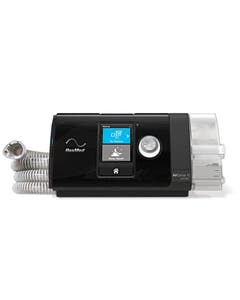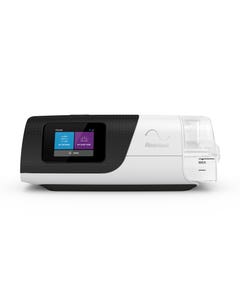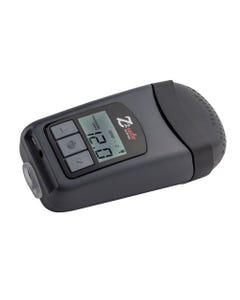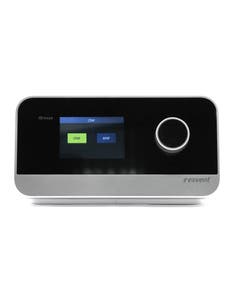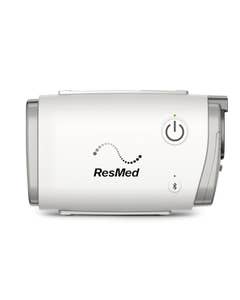Things to Know About Sleep Apnea and CPAP
Sleep apnea is one of the most common sleep disorders affecting nearly 100 million people worldwide. It is a sleep condition that disrupts breathing during the night, repeatedly starting and stopping throughout the night. If it is untreated, this disorder could potentially become serious. There are several risk factors for sleep apnea, including both age and weight. Additionally, many people also may have this condition without even knowing they do as the signs of it occur during sleep. Continuous positive airway pressure, also known as CPAP therapy, is one of the most popular treatments for sleep apnea. If you suspect that you have sleep apnea or have been recently diagnosed, it may be time to get a better understanding of the sleep disorder and how to treat it.
What is Obstructive Sleep Apnea?
Obstructive sleep apnea or OSA causes you to repeatedly stop and start breathing while you sleep. OSA is the most common form of sleep apnea. Other types of sleep apnea are central apnea and mixed apnea. OSA happens when throat muscles overrelax during sleep, resulting in the throat closing up the airway and causing disrupted breathing. Whether people with OSA are aware if they have this condition or not, they can experience very frequent "episodes" of disrupted sleep. This frequent disruption of natural sleep can affect your health both mentally and physically. The impacts on people's quality of life in the daytime include both tiredness and headaches, and other symptoms as well.
Who Gets Sleep Apnea?
OSA can be related to the biological structure of your throat muscles, and some people with heart problems or lung problems may also experience sleep apnea. But, lifestyle and behavioral factors are the most common causes of sleep apnea. Obesity, aging and lifestyle choices such as smoking, drinking alcohol and the use of sedatives may all cause sleep apnea.
How to Treat Sleep Apnea
The use of a CPAP machine for PAP therapy is a non-invasive treatment that can reduce the frequency of sleep apnea episodes and promote healthy sleep. A doctor will prescribe CPAP therapy including the settings for the machine based on the severity of your sleep apnea. Along with CPAP therapy, patients with sleep apnea can also make some lifestyle changes including:
- Losing weight - excessive weight, especially around the neck contributes to sleep apnea
- Avoiding alcohol and smoking - both habits can cause more frequent sleep apnea episodes. Alcohol relaxes the throat muscles and tobacco smoke irritates the throat lining causing “apneas”.
- Trying different sleeping positions to minimize apneas - sleeping on your stomach or side is ideal.
Even with a disciplined lifestyle, many patients still require the assistance of CPAP to ensure healthy sleep.
What is a CPAP Machine?
A continuous positive airway pressure (CPAP) machine is the most commonly prescribed device to treat sleep apnea. It directs pressurized air through a mask worn over the nose and/or mouth as you sleep. The continuous airflow keeps the airway open and helps you breathe normally so that apneas do not occur. Use of a CPAP machine improves your ability to sleep at night, resulting in reduced daytime sleepiness. CPAP machines can fit easily on a nightstand for nightly use. Portable models allow frequent travelers to take their CPAP therapy on the go. Some patients may find CPAP difficult. Other options that help patients adjust to CPAP therapy include:
- Auto CPAP - which automatically adjusts the air pressure setting based on your breathing pattern.
- BiPAP - which has set pressure settings for both inhalation and exhalation to help patients adapt to breathing pressurized air.
Why Should You Treat Sleep Apnea
Sleep apnea causes sleep deprivation, increases the risk of heart attacks and strokes, and potentially more. Long-term loss of healthy sleep can have an impact on your overall health. Sleep deprivation from sleep apnea can cause:
- High blood pressure
- Diabetes
- Reduced immune performance
- Heart problems
- Impaired memory
- Depression and anxiety
Addressing the issue of sleep deprivation begins with determining if sleep apnea is the cause.
Getting Tested for Sleep Apnea
We recommend consulting with your physician about getting tested for sleep apnea. There are a few different styles available, including both in-lab studies and at-home tests. In-lab studies require a person to stay overnight in a sleep lab to be monitored and evaluated. For convenience, you can also take a sleep apnea test at home. The CPAP Shop recommends Sleep Care Online, an at-home sleep test that delivers the same accurate results as in-lab studies but is conducted in a person's own home, enhancing their comfort and experience.
For more questions about sleep apnea or CPAP machines, give our team at The CPAP Shop a call at 866-414-9700. The CPAP Shop is an authorized retailer of all CPAP products and more. Our knowledgeable staff would be happy to assist you in any way we can.




